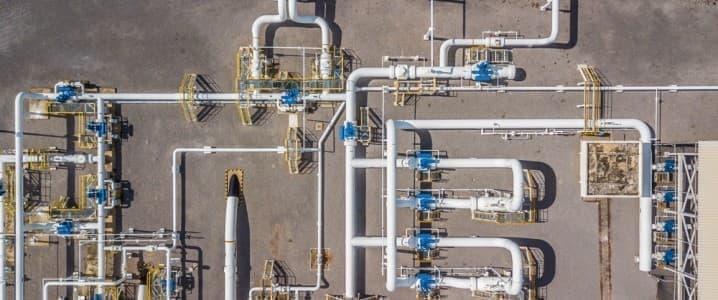New Canadian Pipeline To Boost Oil Prospects

Canadian oil industry's new hope is the Trans Mountain conduit which is set to begin operating next year.
The pipeline expansion will help Canada increase its pipeline capacity, overcome constraints and open new markets in Asia, improving price for crude.
The pipeline will transport around two times as much oil as previously, with capacity at 890,000 bpd, and it is expected to reinvigorate the industry and boost oil prospects.
Canadian oil producers have repeatedly pushed for new oil transportation links and pipeline expansion projects in recent years without much avail. The massive Keystone XL pipeline project was halted by President Biden in 2021, leading Canada to be more pessimistic about its North American oil potential. However, the Trans Mountain conduit, which is set to start up next year, is expected to help Canada overcome its constrained pipeline capacity and open new markets.
Calgary-based TC Energy, the sponsors of the Keystone XL pipeline, decided to bring an end to the construction of the partially built line after President Biden rejected plans for it to run through the U.S., transporting crude from the oil sand fields of western Canada to Steele City, Nebraska. Keystone was set to measure 1,200 miles, having been approved by President Trump after years of delay under the Obama administration. It was supposed to transport 830,000 bpd of oil to Nebraska and onwards to the Gulf of Mexico. Biden cancelled the permit on the grounds that burning oil sands crude could worsen climate change, going against U.S. climate pledges.
For many, the cancellation of Keystone was the nail in the coffin for Canada’s new oil pipeline ambitions. However, a new project, the Trans Mountain conduit, is bringing hope to the oil and natural gas industry once again. The expansion of the conduit could open Canada to new markets in Asia and help the country get better prices for its crude. Prime Minister Justin Trudeau bought the project for $3.3 billion from Houston-based Kinder Morgan in 2018 to lessen oil-sands producers’ dependence on U.S. refiners that drive down the price of their crude. In previous years, Canada’s constrained pipeline capacity meant that it relied heavily on U.S. oil refiners, who bought Canadian crude at discounted prices due to the lack of other market options. The difference in price per barrel between Western Canada Select and West Texas Intermediate has been significant over the years, standing on average between $10 and $20 and spiking several times over the last six years, with a peak difference of $50 in 2018.
The new Trans Mountain expansion will help Canada overcome its pipeline capacity constraint. The $22.9 billion Trans Mountain conduit will transport around two times as much oil as previously, with a total capacity of 890,000 bpd. The country’s biggest oil producer, CNRL, hopes to shop 94,000 bpd on the route – around 16 percent of the line’s total capacity – starting in the first months of 2024. Companies are aiming to establish new markets in Asia and the U.S. West Coast. This will also help producers transport crude from new oilfield expansion projects, such as Exxon Mobil’s 15,000 bpd Cold Lake facility expansion. It is expected to reinvigorate the industry and encourage operators to reconsider paused expansion projects.
Despite optimism around the opening of the new pipeline, the project has faced significant criticism. The cost of the pipeline has risen sixfold since the original proposal in 2013, from around $4 billion to over $22.9 billion. In addition, the project was expected to be completed in 2019, five years earlier than the current projected completion date. Experts suggest this delay and cost spike show the need for regulatory reform in Canada to improve oversight on projects such as this. The pipeline has faced opposition from several actors, which has contributed to the repeated construction delays. The then government of British Columbia used “every tool at its disposal” to stop the project, rejecting construction permits in 2017. This was followed by the rejection of the federal government’s approval of the project by the Federal Court of Appeals in 2018. Although it was thought to be structurally simple, with hopes of it being completed rapidly, the continual opposition to the project has made it much more difficult and costly than originally expected.
Even now, the pipeline continues to face opposition, particularly in terms of climate change, as the world undergoes a green transition. Tens of thousands of people have demonstrated against the pipeline, with hundreds being arrested. Many argue that the capacity expansion provided by the pipeline would lead to increased tar sands production, the dirtiest form of crude production, which would have a negative impact on the environment and would be detrimental to Canada’s climate aims. It could also encourage reliance on fossil fuels rather than renewable alternatives at a time when North America is supposed to be transitioning to green.
The Trans Mountain conduit expansion is expected to boost Canadian oil production and help the country expand its crude markets to bring oil prices up to the regional average. But following years of delays and the significantly increased costs incurred, it continues to face criticism, with many suggesting the need for an improved regulatory system to prevent these types of challenges from happening again. In addition, opposition from environmental groups could continue to hinder the completion of the pipeline.




